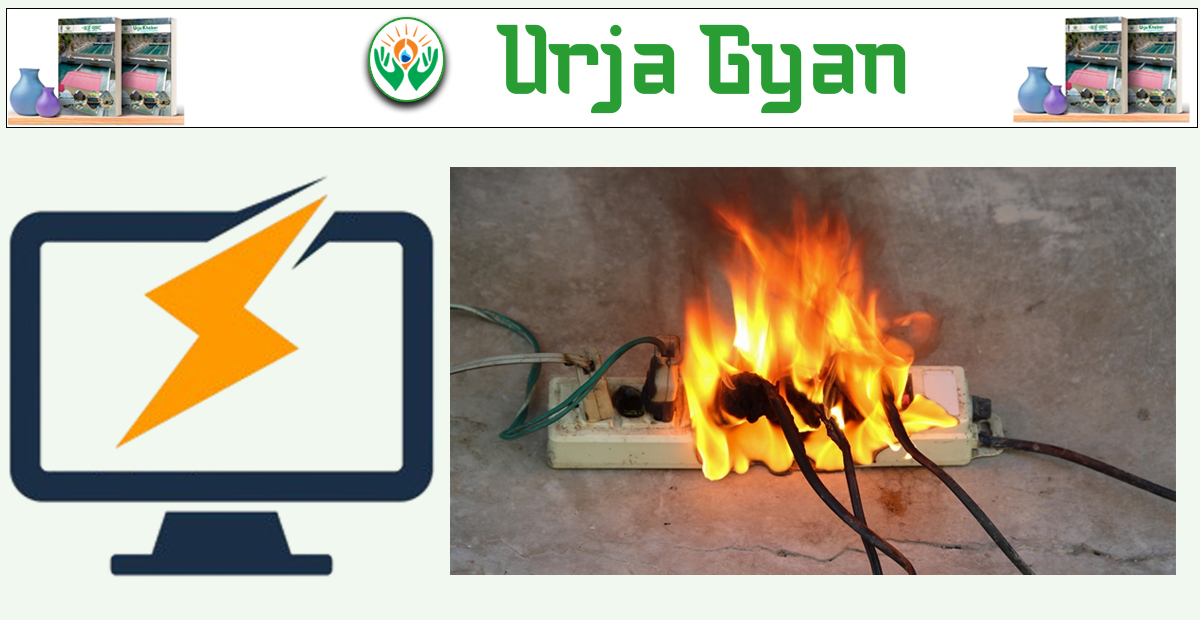Energy Update
Electrical Accidents, Their Causes, and Preventive Measures

Kathmandu; For the weekly knowledge column 'Urja Gyan' published every Friday by Urja Khabar, this week we present information on electrical accidents, their causes, and how they can be avoided. Last week, in the last issue, we had published about electric transmission towers used in power lines.
1. What is an electrical accident?

Answer: An electric accident is an unexpected incident in the flow or utilization of electricity, which can result in bodily injury to people and/or damage to life and property.
2. Why do electrical accidents happen?

Answer: There are numerous reasons for electrical accidents. But some significant reasons are as follows:
Aged and weakened distribution systems: Electric cables degrade, deteriorate, or become hazardous with no upkeep. When exposed and touching other wires or conductive metallic surfaces, these wires can short circuit and cause fires.
Circuit and transformer overload: When a circuit or a transformer is overloaded, they generate excess heat, which can damage equipment or cause a fire to break out.
Illegal electrical connections (hooking): Hooking is drawing power directly from the line without a meter or legal permission. It's illegal and dangerous, commonly observed in slums and encroached land in Nepal.
Use of low-quality electrical materials and equipment: Low-quality or unapproved electrical devices are prone to failure under regular loads, resulting in overheating, melting of insulation, short circuits, or fires.
Poor grounding (earthing) systems: Earthing is harmless and permits the 'faulty' electricity to drain into the ground without any risk. If this fails, metal appliance components will become live and pose electrocution or death risks.
Improper construction along power lines: Construction near transmission lines is very dangerous. It increases the likelihood of electrocution, fire, and interruption of service.
Negligent maintenance of transmission and distribution lines: Neglecting inspection and repair can lead to accidents, especially during dry periods or in slums when malfunctioning transformers or damaged wires can cause fires.
Bare live wires: If the insulation of a live wire is damaged, it can shock individuals, cause fires, or ruin equipment.
Untrained or illegal electricians: Electric wiring by inexperienced people can cause devastating accidents.
Not being aware of electrical safety: In countries like Nepal, the majority of people do not know about the hazards and proper use of electric systems, and hence accidents are occurring unnecessarily.
Water spillage near electric appliances or switchboards: Water and electricity don't mix. Wherever water touches electrical points, there could be short circuits, fire, or electric shocks.
Misuse of extension cord or multi-plugs: More than one appliance connected to an extension cord or improper use increases the risk of fire.
Faulty or abandoned home appliances: Faulty refrigerators, heaters, washing machines, etc., can cause electric shocks, short circuits, or fire.
Faulty solar or backup installation: Faulty installation of solar, inverter, or generator systems can lead to fire or electrocution.
Damage to underground cables when digging or building: If metal objects hit live underground cables during digging, it can lead to fire, shocks, or explosions.
Tree branches touching live wires: If branches touch live wires, it can lead to fires or human accidents.
Lack of regular inspection by the electricity authority: Without regular inspections, faults go unnoticed, and the chances of major accidents are greater.
Tampering with meters or electrical boxes: Tampering to steal electricity is illegal and extremely risky. Due to open system infrastructure in Nepal, lightning or storms can lead to short circuits, fire, or destruction of the system.
Children playing around open electrical equipment: Children are ignorant and curious about electrical dangers. Playing around open wires, transformers, or poles can lead to fatal accidents.
3. How do we avoid electrical accidents?
Answer: There are several preventive measures that can be followed to avoid electrical accidents:
Public awareness campaigns: Educate people on electrical safety through media, schools, and community programs.
Wearing proper safety equipment: Ensure workers use gloves, helmets, insulated tools, and other personal protective equipment.
Maintenance of electrical systems on a regular basis: Regularly check and maintain to prevent breakdowns and faults.
Employment of quality equipment and materials: Avoid using low-quality wires, insulators, and fittings. Employ only certified electrical materials.
Employ only trained and licensed electricians: Do not allow non-trained individuals undertake electrical installation or repair.
Minimum safe distance and standards to achieve: Ensure that there is sufficient clearance between electric cables and any building, trees, or structures.
Fault report and response mechanism to be reliable: Implement schemes facilitating early report and early action against electrical risks.
Grounding and circuit protection to guarantee: Implement proper grounding systems and circuit breakers that will prevent overload and short circuit.
Prohibition on illegal connection: Inspect and de-energize illegal power connections to reduce safety risks.
Avoid construction accidents near power lines: Plan with the utility company before construction or excavation near electric lines.
Conversation
- Info. Dept. Reg. No. : 254/073/74
- Telephone : +977-1-5321303
- Email : [email protected]














